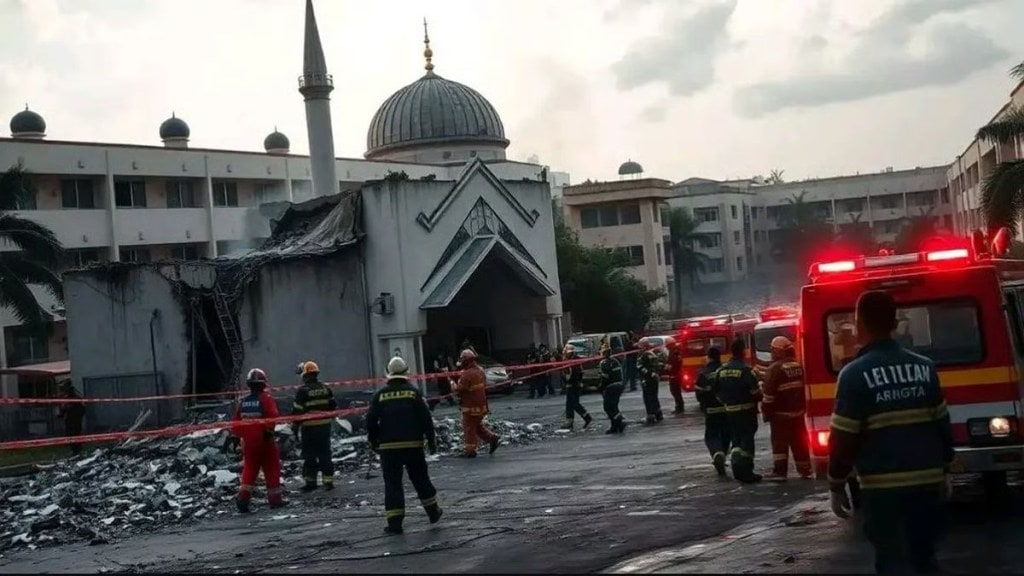Multiple explosions shook a mosque at a high school during Friday prayers in Jakarta, Indonesia’s capital, injuring at least 55 people, mostly students. Police tried to dissuade speculation that the blasts were a terror attack and said they were investigating.
Witnesses told local television stations that they heard at least two loud blasts around midday, from inside and outside the mosque, just as the sermon had started at the mosque at SMA 27, a state high school within a navy compound in Jakarta’s northern Kelapa Gading neighborhood.
Students and others ran out in panic as gray smoke filled the mosque. Most of the victims suffered minor to severe injuries from glass shards and burns. The cause of the explosions was not immediately known but they came from near the mosque’s loudspeaker, according to Jakarta Police Chief Asep Edi Suheri.
The injured were rushed to nearby hospitals, from where some were sent home after initial treatment but 20 students remained hospitalized for burns, three of them with serious injuries, the police chief said. Videos circulating in social media showed dozens of students in school uniform running in panic across the school’s basketball court, some covering their ears with their hands, apparently to protect themselves from the loud blasts.
Some of the injured were carried on stretchers to waiting cars. Shocked relatives of the students gathered at centers set up at Yarsi and Cempaka Putih hospitals to seek information about loved ones. Parents told television stations their children had wounds from being hit in the head, feet and hands by sharp nails and pieces of exploding objects.
Suheri, the police chief, said an anti-bomb squad that was deployed at the scene found toy rifles and a toy gun near the mosque. “Police are still investigating the scene to determine the cause,” he said and urged against speculation that the incident was an attack before police investigation is completed.
“Let the authorities work first,” Suheri said. “We will convey whatever the results are to the public.”Indonesia, the world’s most populous Muslim-majority country, was struck by a major militant attack in 2002 when al-Qaida staged bombings on the resort island of Bali that killed 202 people, mostly foreign tourists.
In subsequent years, there have been mostly smaller, less deadly strikes that have targeted foreigners, the government, police and anti-terrorism forces, as well as those considered infidels by militant groups. In December 2022, a Muslim militant and convicted bomb-maker who was released from prison the previous year, blew himself up at a police station in West Java, killing an officer and wounding 11 people. Since 2023, the Southeast Asia nation has experienced what authorities here call a “zero attack phenomenon,” crediting the government with the stable security situation.

